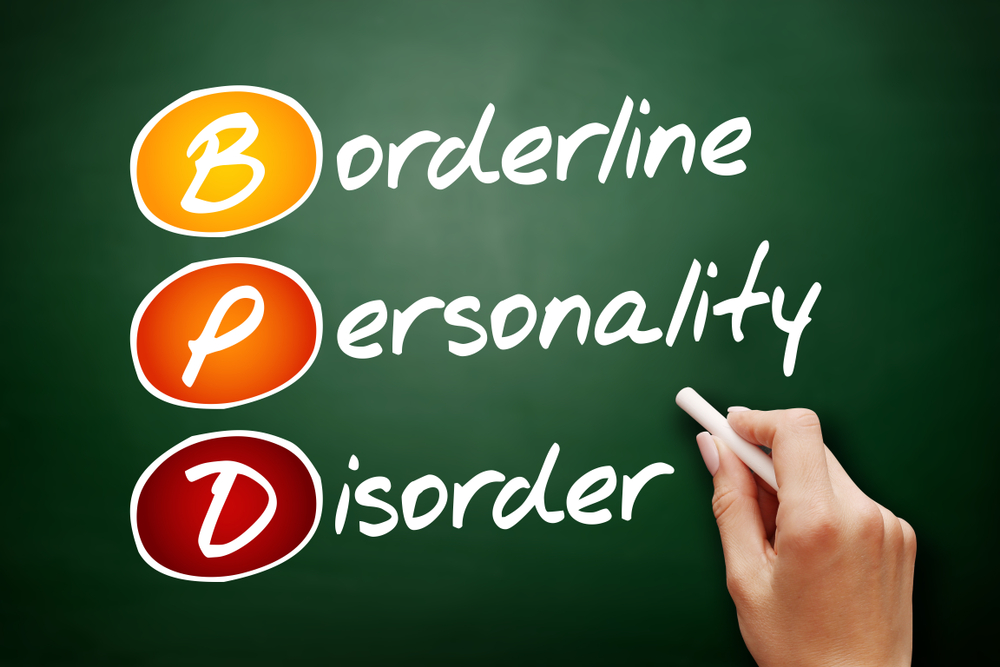Borderline personality disorder (BPD) is listed in the Diagnostic and Statistical Manual of Mental Disorders, Fifth Edition (DSM-5) as a chronic mental health disorder. BPD is characterized by “hypersensitivity to rejection and resulting instability of interpersonal relationships, self-image, affect, and behavior.” This instability interferes with one’s ability to function in his or her daily life, long-term planning, as well as an individual’s sense of identity. As is explained by the Mayo Clinic individuals with borderline personality disorder have an intense fear of abandonment or instability, and are often unable to tolerate being alone. Even with the strong desire to have loving, and lasting relationships, the symptoms of BPD such as inappropriate anger, impulsiveness, and frequent mood swings may push others away. It is not uncommon for loved ones to unintentionally act in ways that can worsen one’s BPD symptoms. The following nine strategies can help you support a person with borderline personality disorder:
-
- Provide validation: Validation includes many practices, such as listening fully with empathy, sharing that you understand, and reflecting what the person is saying. Validation does not condone bad behavior or rage, but rather demonstrates that we are listening and not judging their emotions.
- Learn about BPD: Take the time to increase your own understanding of what BPD is and how it affects people. This can also help you correct any misconceptions of this complex diagnosis and challenge stigma.
- Acknowledge feelings before facts: BPD causes intense moods and mood swings, and sufferers have trouble regulating their emotions. Verifying one’s feelings first can help to diffuse a possible volatile situation.
- Talk about other things: Although it may be tempting to allow one’s BPD or mental health concerns to be the constant topic of conversation it is important to take the time to discuss other things. Creating space for and focusing on other topics and interests can help your loved one avoid building their identity and your relationship around BPD.
- Remain trustworthy and consistent: This can help them feel more secure and supported as your loved one knows what to expect regarding your actions and reactions.
- Be patient: Understand that change can be difficult and frightening to people with BPD, but things can improve over time.
-
- Learn about their triggers: A trigger, in the context of BPD, typically refers to something that precipitates the exacerbation of one’s BPD symptoms. When you are aware of your loved one’s triggers you are better equipped to help him or her avoid them, and the outbursts that accompany them.
- Identify strengths: A person with BPD often struggles to form and maintain a positive self-image, especially when compounded with the difficult aspects and stigma of BPD. Remind your loved one of their strengths and express your positive feelings for them.
- Take suicide and self-harming threats seriously: People with borderline personality disorder have a significantly higher rate of self-harming and suicidal behavior than the general population. If your loved one is thinking of harming themselves or attempting suicide they are in immediate need of professional help.
For Information and Support
Every family in need of mental health treatment must select a program that will best suit the needs of their family. When one member of a family struggles, it impacts everyone in the family unit. To maximize the benefits of treatment we work closely with the entire family to ensure that everyone is receiving the support they need through these difficult times. Seeking help is never easy, but you are not alone! If you or someone you know needs mental health treatment, we strongly encourage you to reach out for help as quickly as possible. It is not uncommon for many mental health difficulties to impact a person’s life, long term. Pursuing support at the beginning of one’s journey can put the individual in the best position to learn how to manage themselves in a healthy way so they can go on to live happy and fulfilling lives.
OUR KNOWLEDGEABLE ADMISSIONS TEAM CAN BE REACHED 24/7 AT INFO@PACIFICRTC.COM OR CALL: 800-531-5769






